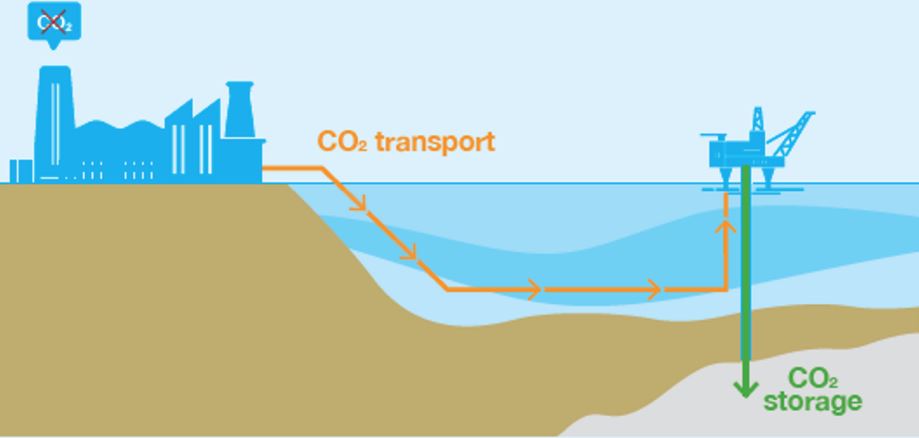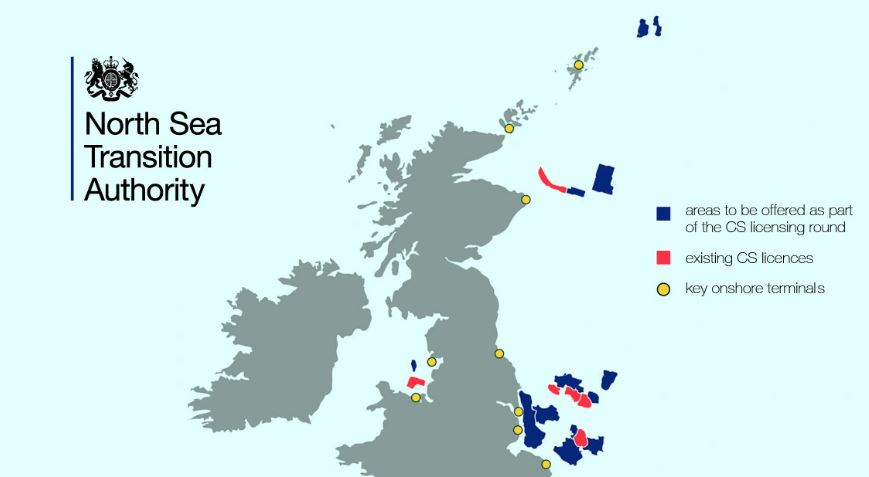Thirty million tonnes of CO2 could be permanently stored In rocks deep beneath the UK’s surrounding seas by 2030, under plans announced today by the North Sea Transition Authority.
In a move strongly endorsed by Offshore Energies UK it has launched the UK’s first-ever carbon storage licensing round, offering 13 areas of the seabed as potential sites for permanently storing millions of tonnes of CO2.
They could be among the first of many. The UK will need up to 100 such offshore sites if it is to meet its target of ‘net zero’ by 2050 – meaning it produces no overall greenhouse gas emissions. The UK’s offshore operators and their supply chain companies have five decades of experience in the kind of engineering needed to make such technologies work.
Carbon capture, utilisation and storage (CCUS) involves the capture of CO2 emissions from burning hydrocarbons such as gas, petrol and oil. At the moment most such CO2 is released into the atmosphere but this risks accelerating harmful processes such as global warming and ocean acidification.

The aim of CCUS is to collect the CO2 before it gets into the air, and then transport it via ships or pipelines to be permanently stored deep underground in geological formations. Developing such technologies was a key element in the 2021 North Sea Transition Deal, under which the offshore energy industry committed to work with the UK government to achieve net zero by 2050.
The hope is that such technologies can play a crucial role in decarbonising the UK’s major industrial hubs, especially around areas like Teesside, Humberside, Merseyside and on the east coast of Scotland.
The areas being offered for licensing by the NSTA are off the coast of Aberdeen, Teesside, Liverpool and Lincolnshire in the Southern North Sea, Central North Sea, Northern North Sea, and East Irish Sea and are made up of a mixture of depleted oil and gas fields and saline aquifers – porous rock formations filled with salt water.

Will Webster, energy policy manager at OEUK, said CO2 storage technologies could prevent tens of millions of tonnes of CO2 entering the atmosphere.
“Carbon capture technologies will be a key element in helping the UK reach net zero. It is particularly important for industry, especially heavy industries which need a lot of energy and so produce a lot of CO2. This applies particularly to the cement and steel industries, petrochemical refineries, and power generation.

“The UK’s oil and gas sector has a highly skilled workforce used to managing and transporting large volumes of gas safely and they will have all the knowledge needed to make this technology work. “This is a long-term project – we want to be able to store 50 million tonnes of CO2 a year by 2035 and continue expanding after that. That means we need a long-term commitment from government, a clear regulatory framework, and business models that encourage early investment.”
Keith Wise, operations manager at OEUK, said: “Deploying CCUS will need the same range of skills and experience as the offshore oil and gas industry already possesses. That includes offshore engineering, geological and seismological sciences and many more. We look forward to seeing this emission reduction technology develop as a key part of the UK’s transition to net zero.”
Share this article
